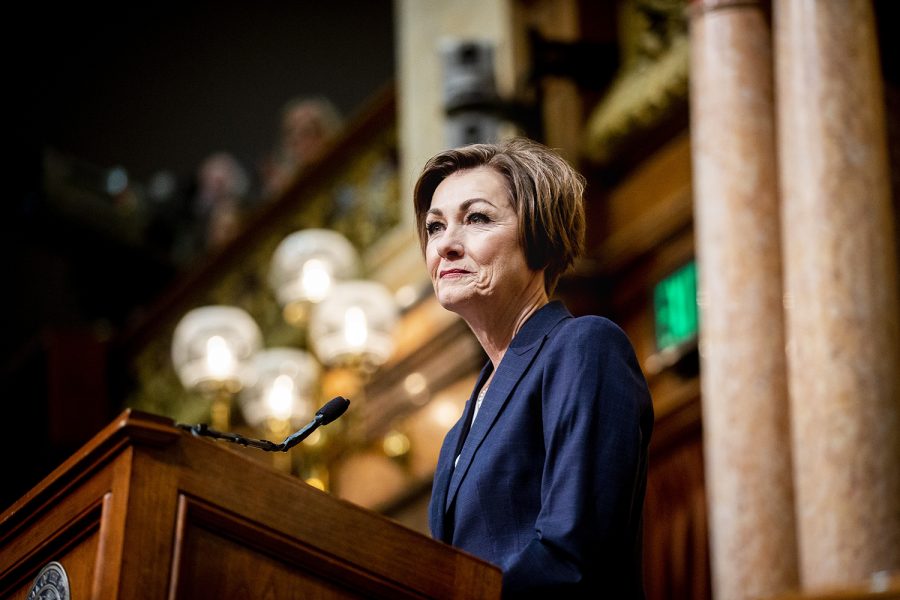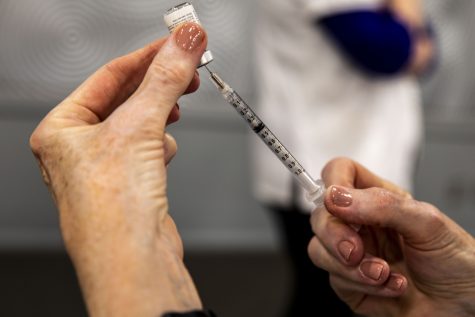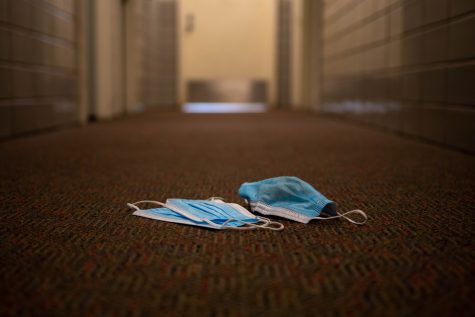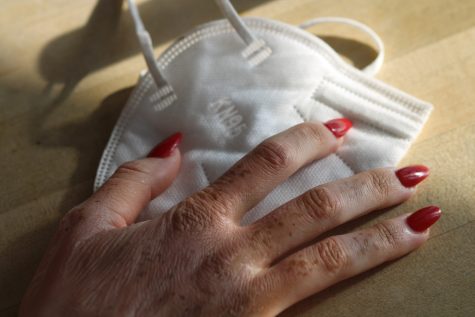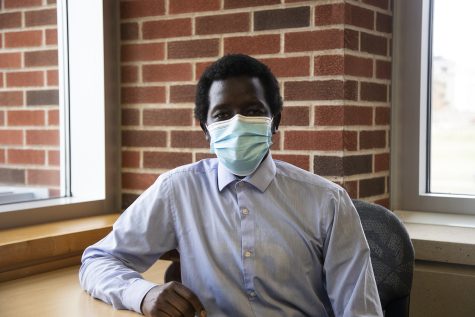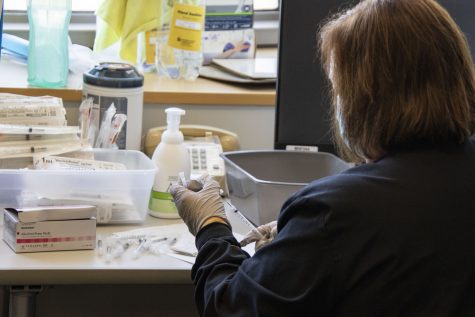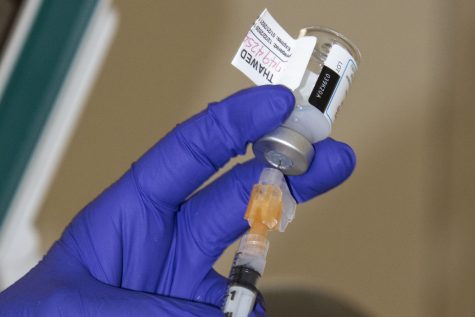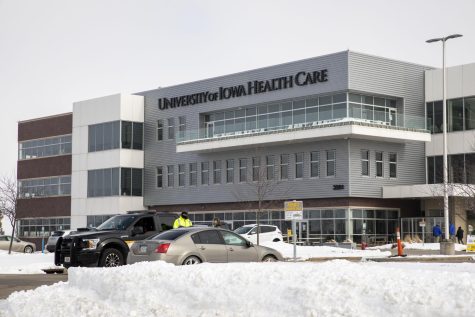Reynolds signs bill granting her increased spending power, emergency provisions to combat COVID-19
The bill gives the governor more power over state spending, enacts appropriations for state agencies, and ensures Iowa schools don’t have to make up days missed due to coronavirus prevention.
Gov. Kim Reynolds gives the Condition of the State address at the Iowa State Capitol on Tuesday, January 14, 2020.
March 17, 2020
Iowa Governor Kim Reynolds signed a bill Tuesday that gives her expanded powers over state spending, along with a range of other provisions to address the growing COVID-19 crisis.
“Every Iowan has a role to play in limiting and mitigating the spread of COVID-19. These measures will fund core services and also give schools the flexibility to keep their students safe,” Reynolds said in a press release. “I appreciate lawmakers working together on legislation that funds key government services and additional emergency measures to combat the spread of COVID-19.”
Increased powers for the governor
The bill expands the ability of the governor to transfer money between state departments, removing limits on transfers and giving notices before transfers.
The bill also grants the governor access to 10 percent of the nearly $200,000 Economic Emergency Fund for discretionary spending, to combat the spread of COVID-19. Any spending beyond that would require the approval of the Legislative Council — a council of Democratic and Republican legislative leaders in the House and the Senate.
“I think that gives the governor some flexibility to react quickly, but it also makes sure that this body, and the senate as well, still is at the table for any of those decisions beyond that level,” House Speaker Pat Grassley, R-New Hartford, said on the House floor Monday night.
Budget measures
The bill allows state spending to continue until the end of August, two months after the end of the current fiscal year, in the event that the legislature is unable to reconvene to pass a budget before June 30.
It also includes appropriations for various medical agencies in the state that lawmakers were seeking to pass later this session.
It appropriates $89 million for the state Medicaid program, $595,000 for the Glenwood Resource Center, a facility for people with severe mental disabilities, and $1.7 million for the “Healthy and Well Kids in Iowa” program.
It also gives $525,000 to the state hygienics lab, to allow for more testing for COVID-19.
Waiving school day requirements
The bill also waives length requirements for the academic year in K-12 schools, ensuring that Iowa students don’t need to make up missed days if school is shut down for four weeks, as Reynolds recommended on Sunday.
Typically, Iowa schools are required to be in session for 180 days a year, or 1,080 hours.
K-12 schools will not need to make up any school missed before at least April 12, and the bill gives Reynolds authority to waive further days after April 12.
“As of April 13, the governor then will have the authority to either blanket waive across the state those days moving forward if needed, or be able to do it on a case-by-case basis,” Grassley said.
Suspending the legislature
House lawmakers passed a concurrent resolution to suspend the legislature until 10:00 a.m. on April 15. The resolution gives the Legislative Council the ability to shorten or extend the suspension if it deems necessary.
Democrats propose failed amendment
House Democrats pushed for an amendment to the bill that would grant stronger unemployment benefits for people who lose work due to the crisis, ensure people who can’t make rent or mortgage payments won’t be evicted, and promote and strengthen telehealth.
“I think that we should expect, probably, to hear stories that tease out the real purpose of this institution in standing up for people across the state,” Rep. Chris Hall, D-Sioux City, said. “The belief that government can do well by its citizens in supporting them, keeping them safe and healthy.”
A measure to suspend the rules and consider the amendment was voted down.



